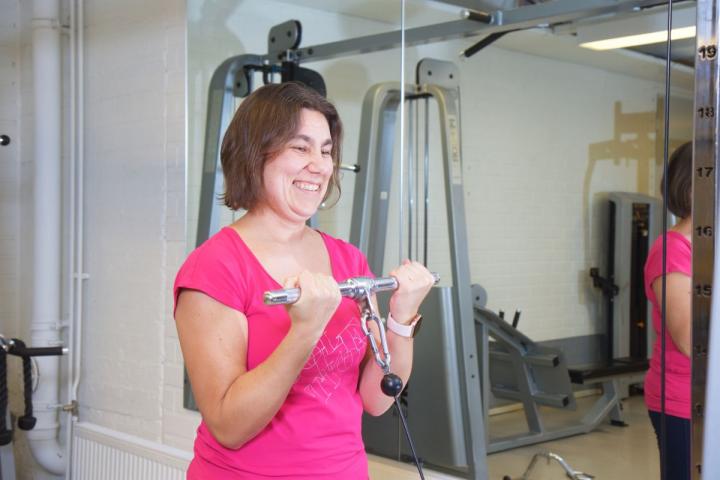Personality traits help to understand why some people are physically active and others are not

Credit: University of Jyväskylä
Personality traits help to understand why some people are physically active and others are not. A new study from the Gerontology Research Center and the Faculty of Sport and Health Sciences at the University of Jyväskylä, Finland, shows that the role of personality may vary depending on how physical activity is measured.
Personality traits reflect people’s characteristic patterns of thinking, feeling and behaving. A study at the University of Jyväskylä focused on two traits: extraversion and neuroticism. Individuals who score high in extraversion are typically social, active and talkative. High scores in neuroticism indicate a tendency to have negative feelings, such as anxiety and self-pity.
The results showed that high extraversion and low neuroticism were linked to higher leisure time physical activity in middle-aged women. Women who scored high in extraversion reported more physical activity, but this was not seen in the physical activity measured by an activity monitor. Women who scored high in neuroticism reported less physical activity and had less physical activity captured by activity monitors.
“Even though both methods assess the frequency, duration and intensity of physical activity, they measure partly different aspects of physical activity,” explains postdoctoral researcher Tiia Kekäläinen from the Gerontology Research Center. “Activity monitors are better at capturing all daily stepping activities whereas self-reporting better accounts for all types of physical activities. Therefore, it is natural that results are partly different between different physical activity measures. It is important to use both ways to assess physical activity behavior.”
Personality traits may explain individual tendencies to estimate one’s own physical activity level
Personality may explain the way individuals assess their own level of physical activity. The results showed that older adults scoring high in neuroticism reported less physical activity than what was measured by accelerometers.
“Neuroticism describes a predisposition to experience negative feelings,” Kekäläinen says. “In addition to lower willingness to participate in physical activities, this kind of tendency seems to be related to underreporting physical activity behavior. The information about the role of personality could be used to help identify risk groups for inactivity and in physical activity promotion work.”
Two larger research projects conducted at the Gerontology Research Center and Faculty of Sport and Health Sciences provided data for the study: from a total of 314 older men and women aged 70 to 85 years who participated in the PASSWORD study, and from 1,098 middle-aged women aged 47 to 55 years who participated in the ERMA study.
###
The research was part of the PATHWAY project funded by the Ministry of Education and Culture of Finland. The research was conducted in collaboration with researchers from the University of Jyväskylä, LIKES Research Centre for Physical Activity and Health, and Florida State University.
Media Contact
Tiia Kekäläinen
[email protected]
Original Source
https:/
Related Journal Article
http://dx.




